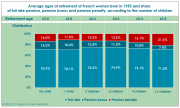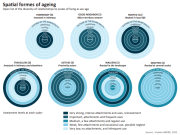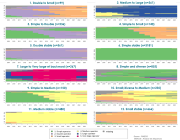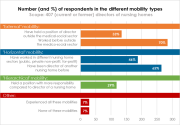
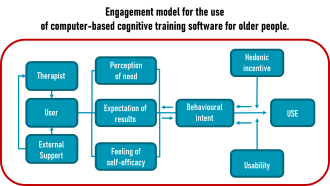
Christelle NAHAS looks at computer-based cognitive training tools to prevent age-related cognitive decline. She examines the challenges faced by designers and prescribers in encouraging the commitment of their target users, in this case the over-65s. It analyses the barriers and facilitators to their engagement and satisfaction, as in any prevention programme.
Christelle NAHAS' work involves exploratory interviews with rehabilitation professionals, questionnaire surveys of users and prescribers, and analysis of co-design sessions with older people. She shows that people's engagement with computer-based cognitive training is based on three principles.
Hedonic motivation is a key principle. To encourage engagement, designers can capitalise on the recreational, competitive and interactive aspects of these programmes. Users need to feel a sense of progress, which is synonymous with pleasure and motivation to participate.
Second, engagement depends on the interaction between users' perceptions of their needs and their skills in relation to the tool. They need to be convinced of the benefits. This means offering simple exercises to those who are, or feel, struggling, and more complex games to those who are more confident in their skills; everyone should feel that they are moving forward as they use the tool.
Engagement therefore depends on how support is provided from the start. To get the most out of training, users must have sufficient resources to use the functionality immediately. Optimising training programmes means personalising them, giving clear instructions to users who need to feel supported.
Christelle Nahas highlights the importance of personalising programmes in terms of ease of use, level of difficulty and progression to maximise engagement and effectiveness.
Doctorante en Psychologie cognitive et Neurocognition, Laboratoire" Translational Innovation in Medicine and Complexity"- Equipe de recherche : ThEMAS-Université de Grenoble Alpes
Références :
- Nahas, C., Gandit, M., Quillion-Dupré, L., & Monfort, E. (2023). How to engage patients in computerized cognitive training: a cognitive rehabilitation expert’s perspective. Disability and Rehabilitation: Assistive Technology, 1-13. https://doi.org/10.1080/17483107.2023.2284879
- Nahas, C. (2024). L'entraînement cognitif informatisé pour les personnes âgées : mieux comprendre le rôle de l'engagement. Thèse de doctorat de l’université Grenoble Alpes.
